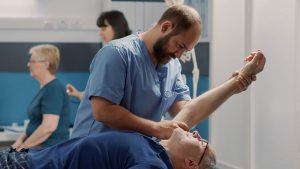1. Looking and feeling better are often inexorably linked. If you manage one, it can feed into the other. Conversely, if one is waning, the other is likely to suffer as well. You need to manage both.
2. We all get a mental and emotional boost when we go out looking good and we know we look good. That positive feeling helps give us the motivation to continue putting effort into how we look. Then our mood is boosted again, and so the cycle continues.
3. Of course, we shouldn’t take looking good as the be-all and end-all of our lives. It may be helpful for feeling better if we look better, but sometimes we need to take time to convince ourselves that there are things that are more important than appearance.
4. Trying to look good can be a complicated process. There’s simple stuff, like a haircut or a new pair of shoes. Then there are the more complicated regimens of skincare products and long-term exercise plans. It can be a lot to think about.
5. Feeling better is something else that isn’t that easy. We can try to tell ourselves we’re happy and sometimes we might even convince ourselves, but really feeling better is something of an ongoing process. You need patience and must be willing to face setbacks.
6. Exercise is an obvious thing that can affect both how you look and how you feel. It can help you build muscle and burn fat. It also releases endorphins that can give a big boost to your mood.
7. Diet is the other major one. No one feels their best when they’re hungry. No one can look their best without the right balance of nutrients. You need to eat regularly and eat well, without taking it to excess.
8. Some people think it’s shallow to think too much about how you look. That ignores how important appearance can be not just for how you feel about yourself, but about how others perceive you. Everyone likes a little validation from others.
9. If you are someone whose brain has particular trouble feeling good, perhaps because of depression, you may need medication or a therapist to help you work it out.
10. You’re not on your own in this. You can find advice and support from friends and family, professionals, or online resources.




